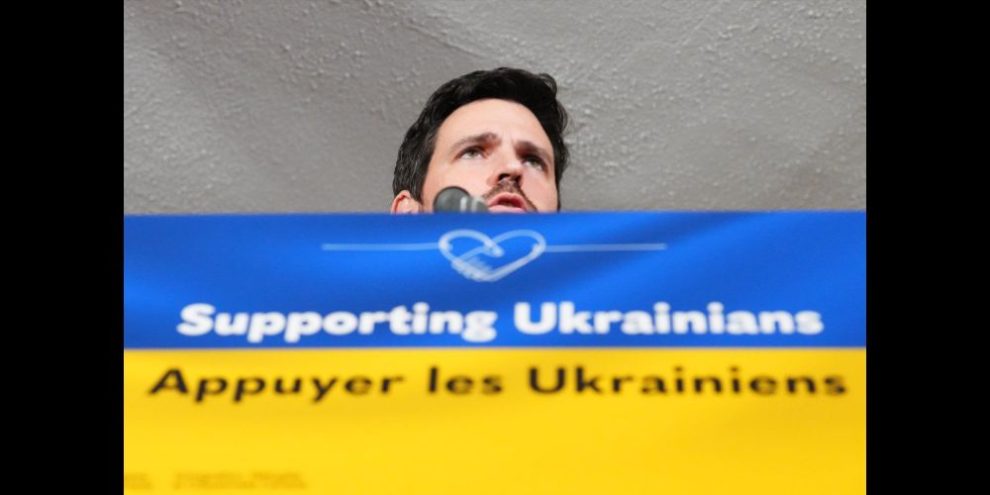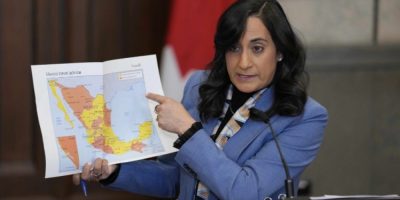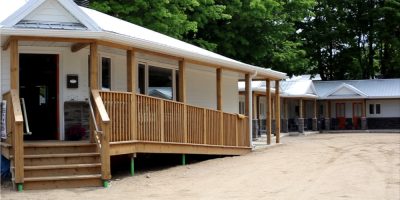
By Sammy Hudes
A long-awaited program to help Ukrainians fleeing violence at home seek permanent residency in Canada will officially launch this fall, the federal government announced Saturday as advocates continued to raise questions about what exactly would be expected of those who want to take part.
Immigration Minister Sean Fraser issued a news release outlining some details of the initiative Ukrainians have been seeking for months.
He said Ukrainians who have fled Russia’s illegal invasion of their home country and want to stay in Canada will be able to apply for permanent residency as of Oct. 23, as long as they have temporary resident status and at least one family member in Canada. Qualifying relatives include spouses, common-law partners, parents, grandparents, siblings and children or grandchildren of a Canadian citizen or permanent resident.
"As we continue to witness the devastating impact of (Russian President Vladimir) Putin’s illegal invasion, we stand resolute in our condemnation of this senseless violence," Fraser said in the statement.
"We continue to extend unwavering support and a lifeline to families separated by this conflict, including through this family reunification pathway that will help Ukrainian families stay together as they rebuild their lives in their new communities in Canada."
The announcement came the same day a program offering temporary emergency visas to Ukrainians fleeing Russian aggression formally closed, though Ukrainians and their family members can still apply for a temporary resident visa to come to Canada under pre-existing immigration measures.
Ottawa said it would continue to process overseas emergency visa applications received before the July 15 deadline free of charge. Fraser had extended the program in March as the war stretched into its second year.
Anyone holding such a visa will have until March 31, 2024 to travel to Canada under the special measures. Emergency visa holders already in Canada will have until that same date to extend or adjust their temporary status, free of charge.
The emergency visa was available to an unlimited number of Ukrainians, allowing them to work and study in Canada for three years as temporary residents rather than refugees.
More than 1.1 million people have applied and at least 800,000 visas have been approved as of July 1, though only about 166,000 Ukrainians, or 21 per cent of the visa holders, have actually come to Canada.
Families eligible for Ottawa's new pathway to permanent residency will have until Oct. 22, 2024 to submit an application.
Ukrainian Canadian Congress executive director Ihor Michalchyshyn said there are many details yet to be released on the pathway and its eligibility requirements. He said he wrote to the Immigration Department on Saturday morning seeking clarity.
"There's lots of questions for the Ukrainian population who are looking at these programs," Michalchyshyn said.
"We were waiting for a family reunification pathway for a long time, so happy that there's some movement on it. It just seems like they've decided there will be such a thing, but how it will work is to be determined."
The Immigration Department said more detailed information, including how to submit an application, will be made available closer to the launch of the program this fall.
It added the pathway will not affect the number of spaces available through the Parents and Grandparents Program, which allows Canadian citizens and permanent residents to sponsor their parents and grandparents to immigrate to Canada. Ukrainians accepted under the new pathway will come in addition to any family members who move to Canada through the existing program.
The United Nations Refugee Agency estimates more than 6.3 million refugees have fled Ukraine, and more than five million are believed to be displaced within Ukraine itself.
Michalchyshyn said the uncertainty surrounding long-term residency has added to the struggle that Ukrainians fleeing the war continue to face.
"War has thrown them into this situation where they're not sure of how long they're going to be away from home and how long they'll be in Canada and what the next steps are," he said.
"Canadians … have been very welcoming, very generous, given the circumstances, and we hope that will continue. We know that's been invaluable for people to make quick transitions out of a war zone."
This report by The Canadian Press was first published July 15, 2023.
Banner image via The Canadian Press





